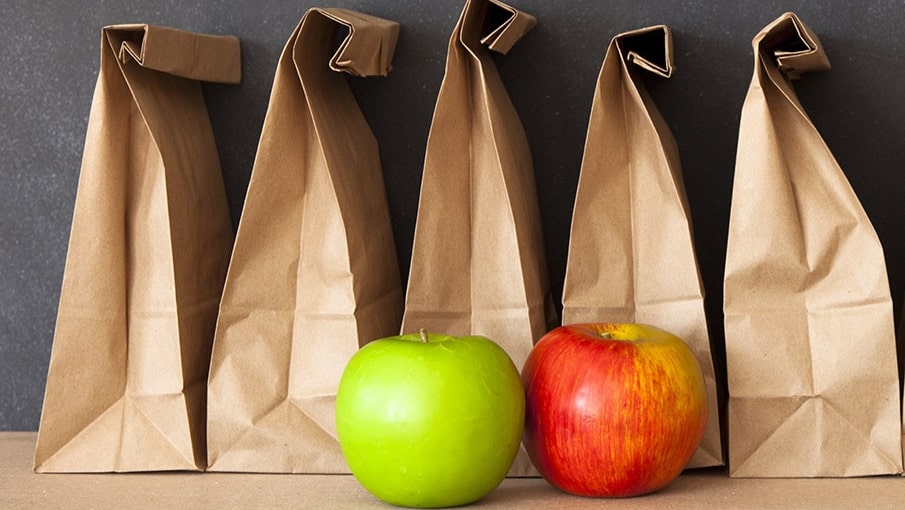When I was a student in high school, hot lunches were available in the cafeteria. Although the cost was nominal, it was very rare that my parents would give me money for such an indulgence. Most of the time I would “brown bag” it. A peanut butter sandwich, an apple, or maybe a couple of homemade cookies comprised a simple, but nutritious, meal.
Of course, I wasn’t the only student who had such a lunch. Many students were in the same boat. So, the brown-bag group and the hot-meal group sat together and enjoyed each other’s company. I never felt that I was somehow inferior to the kids who ate a hot lunch, and I don’t think they felt superior to me. Some parents had more money than others. That was life. No big deal.
But things have changed. Have you ever heard of “lunch shaming”? I hadn’t until the Detroit News carried an article about it recently. The “shaming” occurs when a student, with a hot meal on his cafeteria tray, comes up to the cashier and finds out that his lunch account is without funds. The cashier then tells the student that he can’t have the hot lunch, but he can have some cheese and crackers instead. Supposedly awash in shame, the student must then sit with his friends and eat the “inferior” meal.
The article featured a local businessman who has worked out a plan with his daughter’s school by which he will automatically pay for a hot meal for any student whose account is in arrears. He says, “Food insecurity is something only adults should deal with, not children.” He has started a fund to encourage other people to do the same thing in other schools.
By the way, this man does not live in low-income area. In fact, it is safe to say it’s middle-to upper-class. Actually, that is part of the problem. You see, if it were a district with a high poverty rate, then not only lunch but sometimes breakfast and dinner would be available free. But that’s another story.
Not surprisingly, the federal government has stepped in to ameliorate the scourge of lunch shaming. Beginning this year, schools must allow students to “charge” a hot meal to their account, even if there are no funds in it. If there is no private fund to pay for the lunch, the school district must assume the cost. In other words, taxpayers have to cough up the money. For example, Dearborn Public Schools here in Michigan had an unpaid lunch balance of $133, 862 last year. That may be on the high end, but it’s probably safe to say that most districts run a lunch deficit.
Aside from this financial burden, does anyone see a problem here? Keep in mind that students whose accounts are zero do not go hungry. They get an alternative meal. It’s not hot, but it’s a meal not unlike the ones I had nearly every day in high school.
A couple of questions come to mind. First, how hard is it for a parent to make a sandwich and add some fruit and/or some cookies? Put them in a brown bag, and the kid has lunch. Depending on a child’s age, he could probably “make” his own lunch.
“But what if there is no food at home?” someone might ask. Then the child would qualify for a free hot lunch. Or, again, he will still get the alternative lunch. Of course, then Social Services might have to get involved if the parents can’t provide the basics. But that’s a different issue.
Second, why is the alternative lunch a reason to be “shamed”? Not all students can afford to buy designer outfits for school, but does that mean they are shamed every time they come to school in Walmart jeans? And if Mom and Dad buy their daughter a new car to drive to school, are the kids who ride the bus shamed?
The real problem here is that too many people want to shelter children from the real world. And the real world is not equal. The idea that it should be is the same foolishness that has brought us participation trophies and the elimination of a class valedictorian.
Parents need to raise their children to value virtues, not material objects. For acquired virtues will determine one’s happiness and one’s contributions to family and society, while material wealth is often a major detriment. Children who occasionally have to eat cheese and crackers for lunch but have loving parents at home are far more blessed than many of their classmates who would, I suspect, trade every hot lunch in the world for a mom and dad who really cared about them.
My father was an Edison repairman, and my mother stayed at home. We lived in a modest house and only had one car. We never went on vacation. If my three brothers and I ever started to complain about our lot in life, my father would say, “You’ve got clothes on your back, a roof over your head, and three square meals. Stop whining.” What he didn’t add was that we were loved. But we knew that. Funny. My brothers and I never felt an ounce of shame over something my family could not afford. What we did feel was gratitude, a virtue in short supply today.
A final thought: Has anyone considered the short and long-term effects on children who learn at a very early age that, no matter the need, there is a government entity that can provide it for free? Can that knowledge be truly healthy?









The consequence is socialism which has never succeeded. A significant number of young people voted for Bernie Sanders and Crooked Hillary which doesn’t bode well for our future